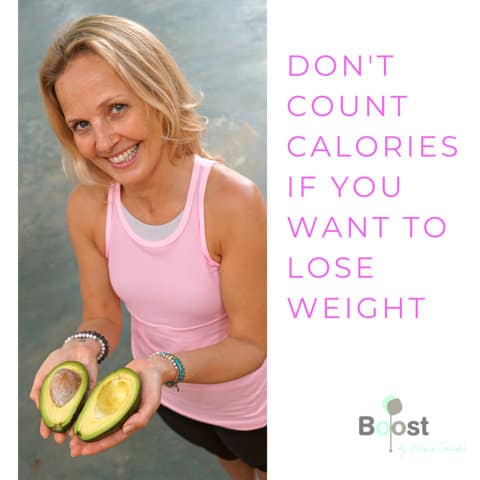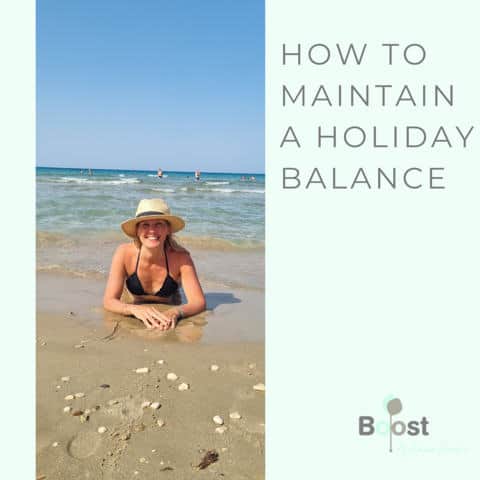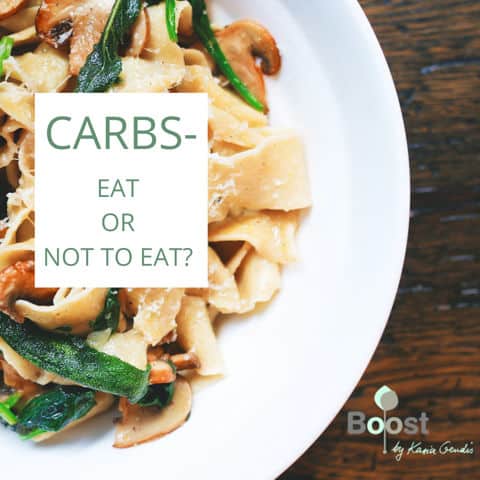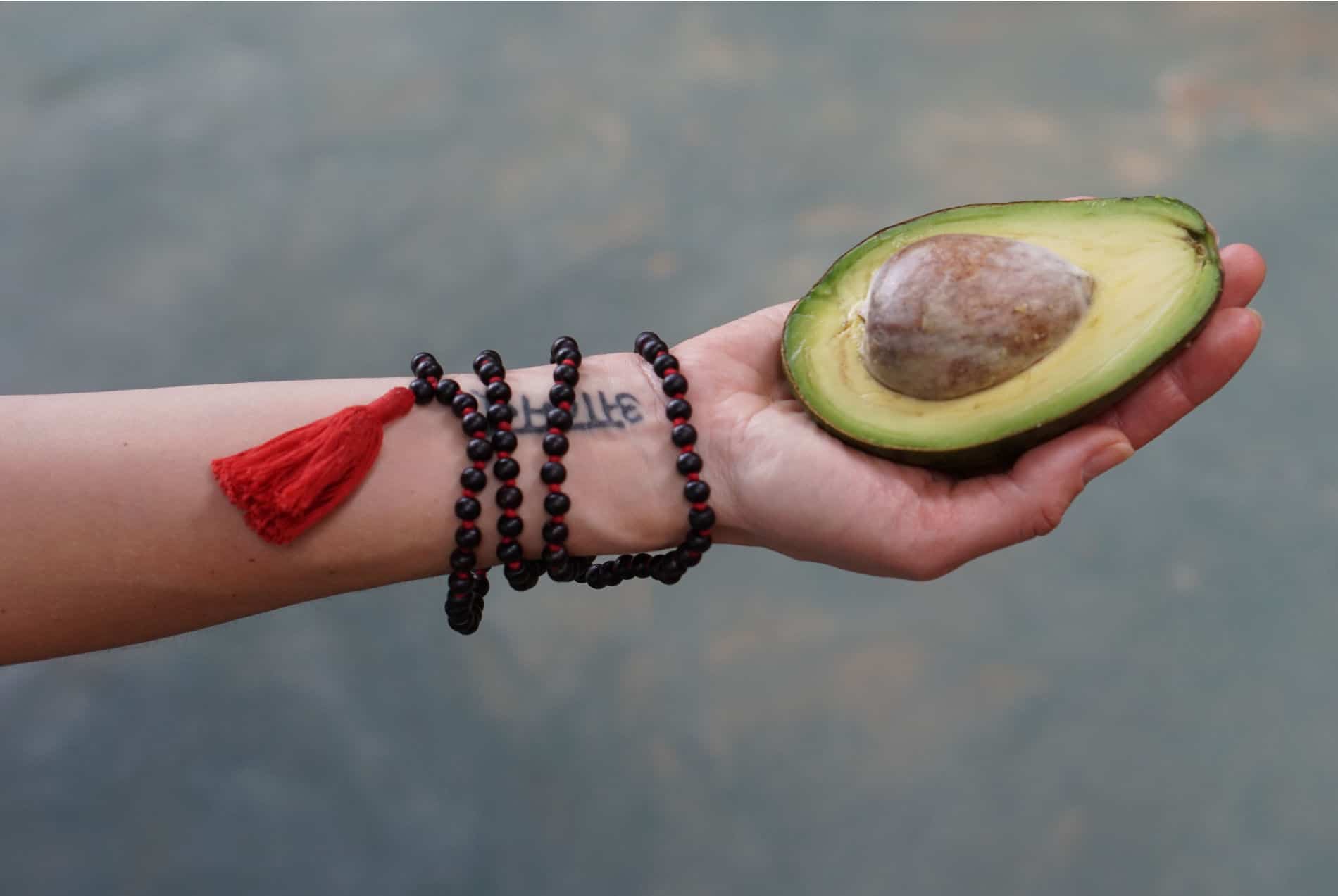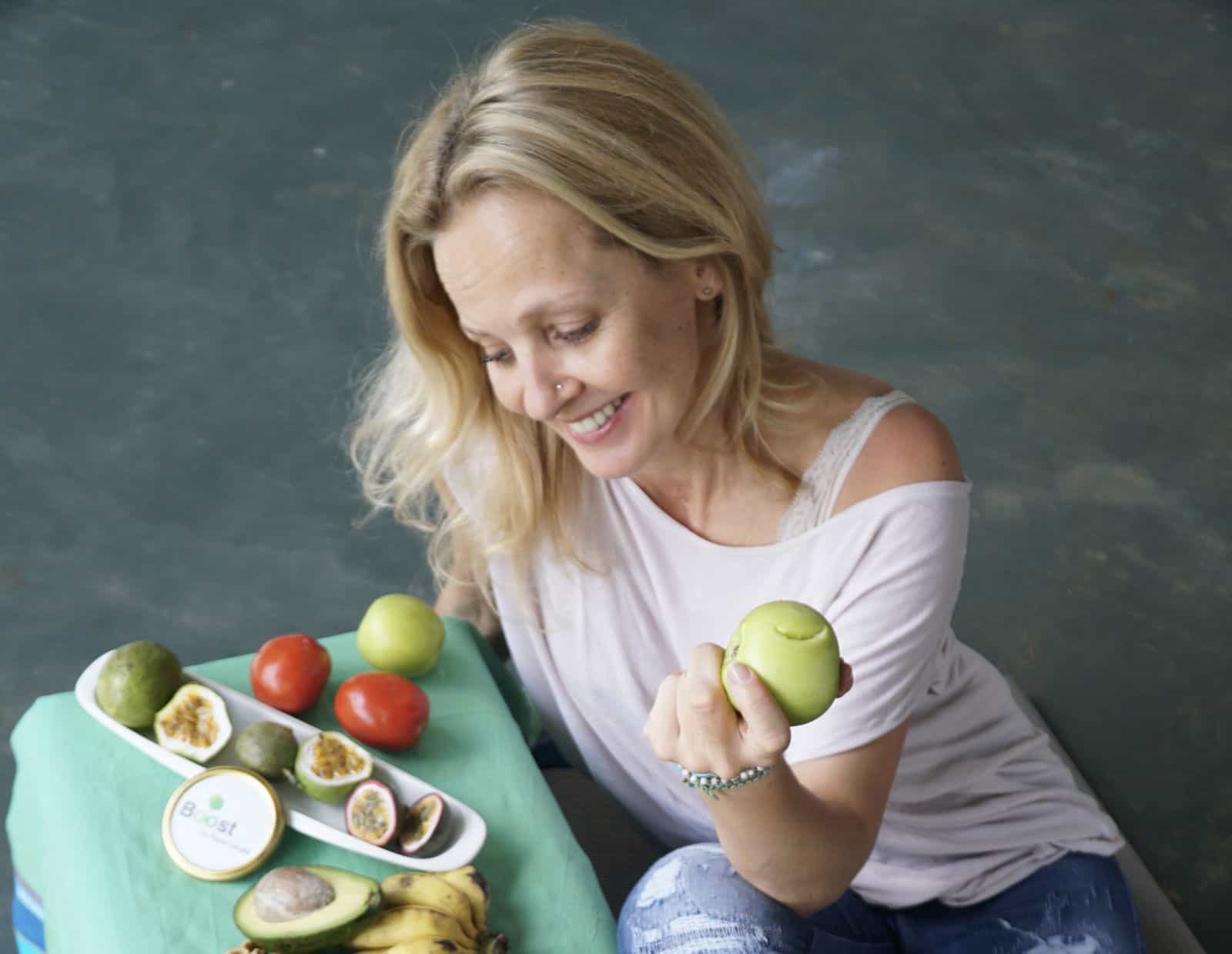There is a lot of misconception around calorie counting.
It is actually an outdated method that has been scientifically disproven.
It doesn’t really work, especially when hoping to achieve sustainable and healthy weight loss.
However, it is still being used by a lot of industries who try to push the concept onto us. Let’s see why it doesn’t work.
Calories are not equal.
Foods with the same amount of calories can be processed by our body completely differently, resulting in very different biological effects. This is due to completely different ratios of macronutrients (carbohydrates, protein, fat), as well as micronutrients (vitamins and minerals).
It’s very important to know, especially when we’re trying to lose weight.
To show you what I mean, I will use my usual example of an avocado (average size) versus a donut (basic donut).
They roughly have the same amount of calories – around 300.
Avocado – 300 calories, around 30 g of fat, 17 g carbs (mostly fiber, almost no sugar), 4 g of protein, potassium, magnesium, Vit C, Vit E, Vit K, smaller amounts of Vit B5, B6.
Donut – 300 calories, around 15 g of fat (different fat though), 30 g of carbs (mainly in a form of sugar) and 3 g of protein.
Now, on to the digestive process.
Let’s first look into the donut.
As you can see above, it has lots of sugar and fat, most probably refined fat, which isn’t going to serve our body very much, but we will talk about fats another time.
Let’s focus on the sugar part because that’s what the donut is mostly composed of (simple carbs – you can find more on that in my blog about carbohydrates). When we put simple carbs into our body, it gets absorbed quickly by the intestines and travels straight into our bloodstream. It spikes our blood sugar and then of course, soon after, it causes sugar/energy crash.
Additionally, with such a high blood sugar levels, insulin rises to counter balance the sugar levels (it helps the glucose, in the sugar, enter the cells for energy use). But, if there is a lot of sugar at once in your bloodstream, a lot of insulin needs to be released. Insulin is often called a fat hormone. Constant high spikes of insulin results in belly fat, body inflammation, high blood pressure and even, in some cases, infertility in women.
So much sugar at once increases your appetite. High levels of insulin tend to block the “feeling full” hormone, called leptin. Essentially, this means that we don’t actually feel full but instead, we continue to feel hungry and further crave sugar(referring here not only to pure sugar but any form of carb that consists of sugar). This is because your pleasure based reward centre is triggered, leading to an increase in your sugar addiction.
Sugar consists of glucose and fructose. What we described above shows how glucose is processed by the body. Fructose is processed a little bit differently by the liver. Whatever excess that can’t be stored in the liver is stored as fat. That fat causes even bigger rises of insulin levels, that long term result in insulin resistance. If you get to that stage, whatever you eat will be turned mostly into belly fat.
Now, let’s look at what happens when you eat an avocado.
Also being around 300 calories, there is almost no sugar so, that whole process that I’ve just described above is not going to be triggered in this case. It will have no effect on your blood sugar levels and it has a low glycemic index, essentially meaning that it can be safely eaten even by people who have diabetes.
Then, there is quite a lot of fat in avocado.
I hear from clients, especially in my weight loss program, “Oh, you know, I can’t possibly eat an avocado, it has so much fat and I am trying to lose weight.”
I agree, it does have a lot of fat, but it is good fat. Monounsaturated fatty acid. It can be used by the body. Every cell needs good fat to function, your brain needs good fat to perform properly, your whole system needs good fat to lose body fat! This kind of fat will help you prevent cardiovascular diseases, lower your bad cholesterol LDL and increase your HDL – good cholesterol. It also helps reduce overall inflammation in the body and supports cancer prevention.
Avocado has a lot of carbohydrates found in the form of fibre. We need fibre. It makes us feel full for longer, its very important for our regular bowel movement, and it will help control blood sugar spikes, which is crucial if you are trying to lose weight or improve your metabolism. Avocado also has vitamins and minerals, for example, potassium that helps lowering the blood pressure.
So, as you can see, 2 different types of food with exactly the same amount of calories have a totally different way of being processed by the body and have very different effects on the organism as a whole.
The avocado will be completely used by the body to function effectively, whereas the donut will mostly cause a lot of havoc in your body and will be stored as fat.
I am not saying that you shouldn’t eat a donut. Please do, but be aware of the process and how you feel after. It is all about your choice.
I love what one of my teachers at the nutrition school said:” Food is not calories. It is coded information for our cells telling it what to do. It is information that our metabolism can use to either run efficiently or sluggishly.” -Dr. Mark Hyman
It’s not the calories, it’s the type and the quality of food that is important.
The calorie counting approach does not take into account digestion, metabolism, absorption, hormone balance, or storage.
We can actually be overfed, but still be undernourished.
Lacking nutrients in the body.
The quality of food we eat influences our metabolism, the rate at which we burn fat, your mood, your sleep, your energy, your mental clarity, and your longevity. That is why it is very important to look at it from that perspective rather than just as a calorie count.
Another aspect is that whole, real foods take longer to be processed by the body and will use more energy to do so, while processed foods don’t require the body to work as much, thus not using much energy and further contributing to the storage of fat.
Nourishing the body and not restricting is the way to lose weight in a healthy and sustainable way.
